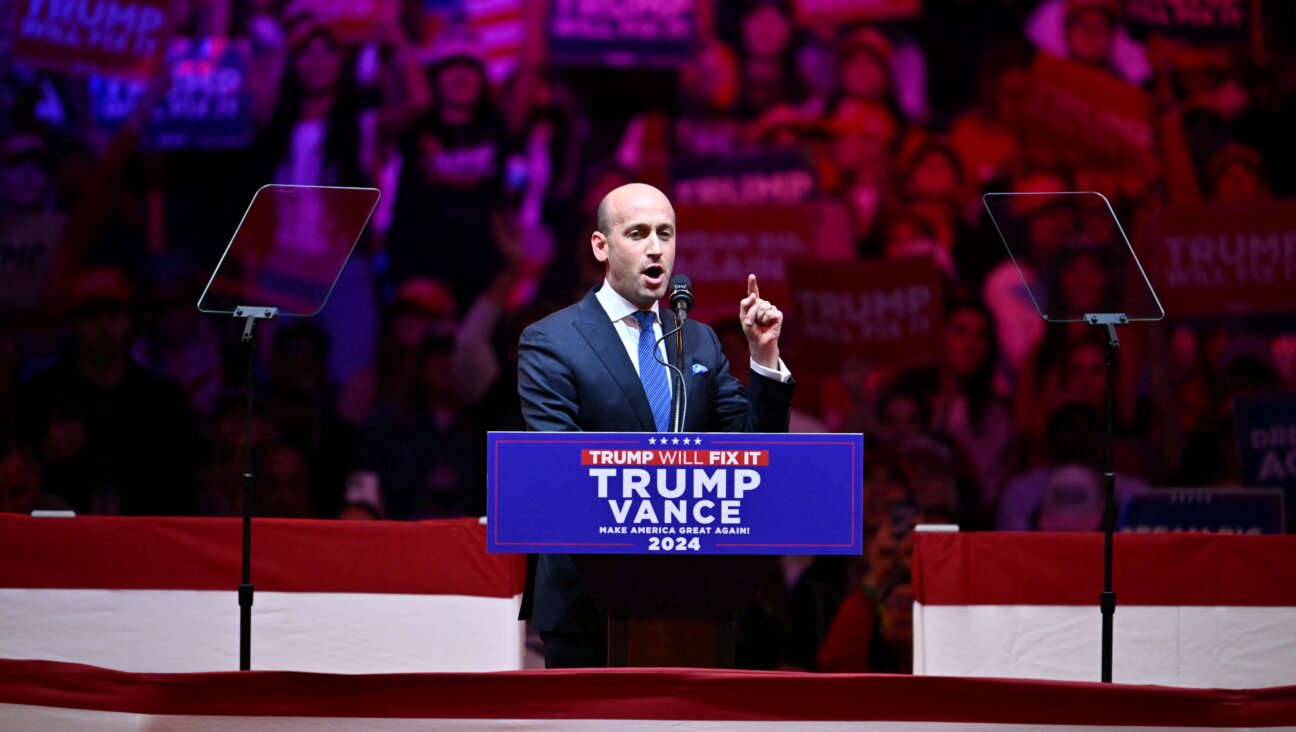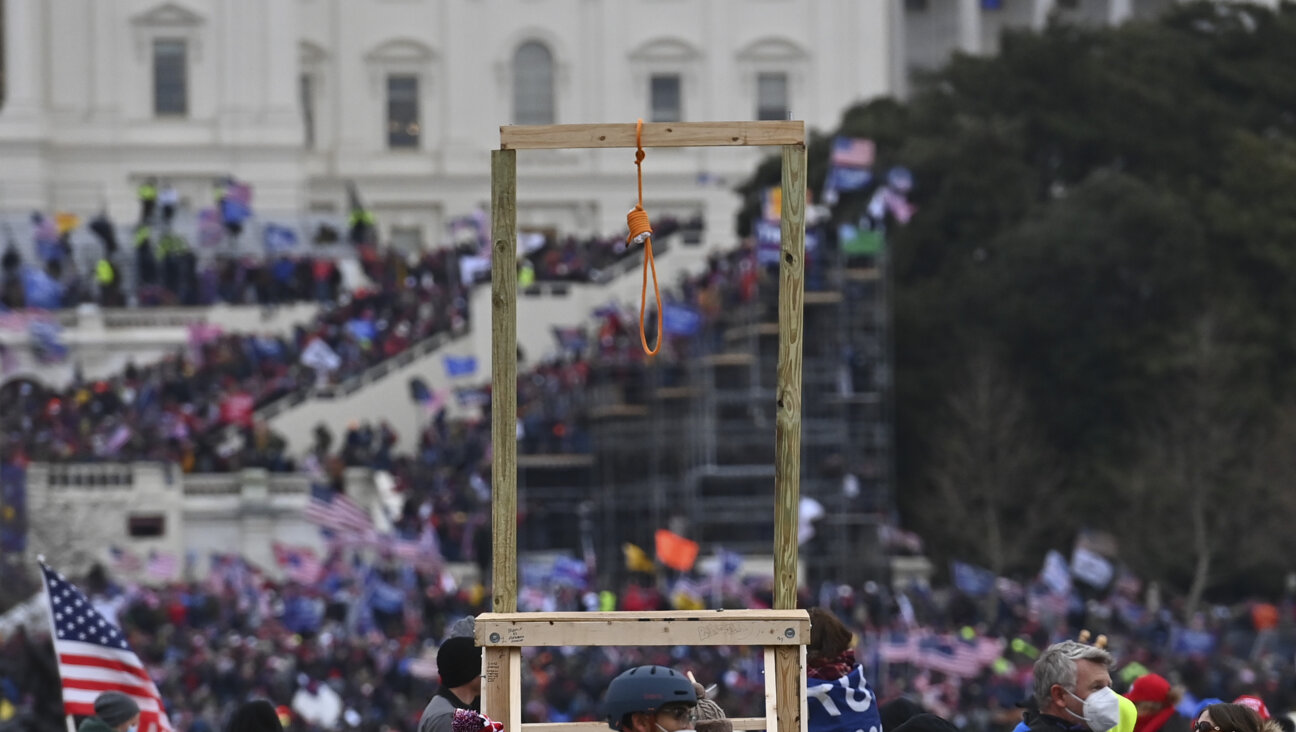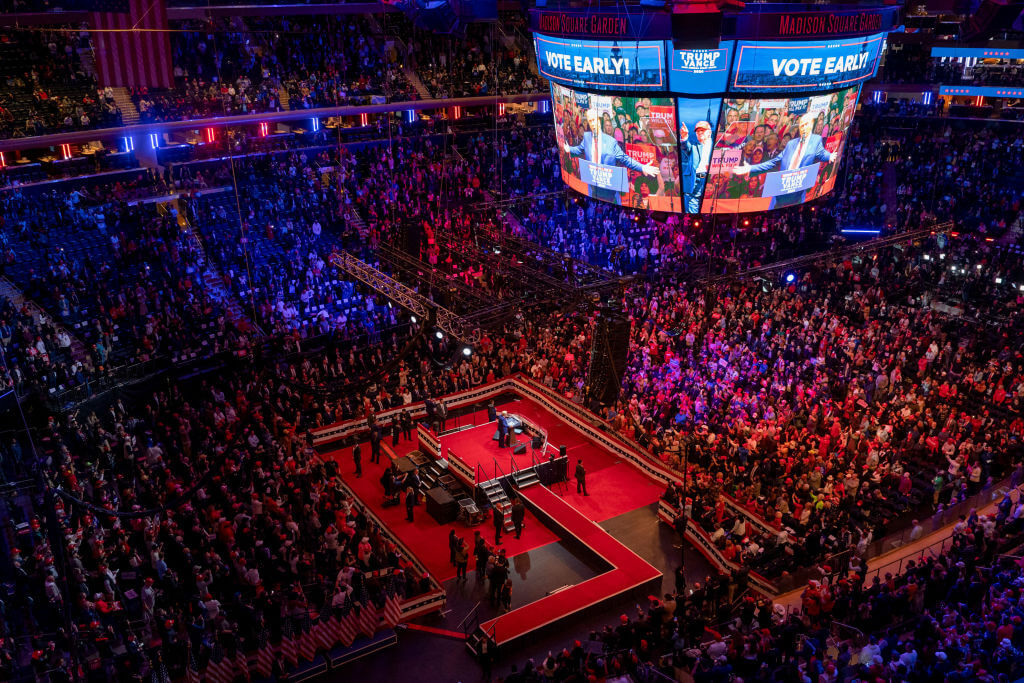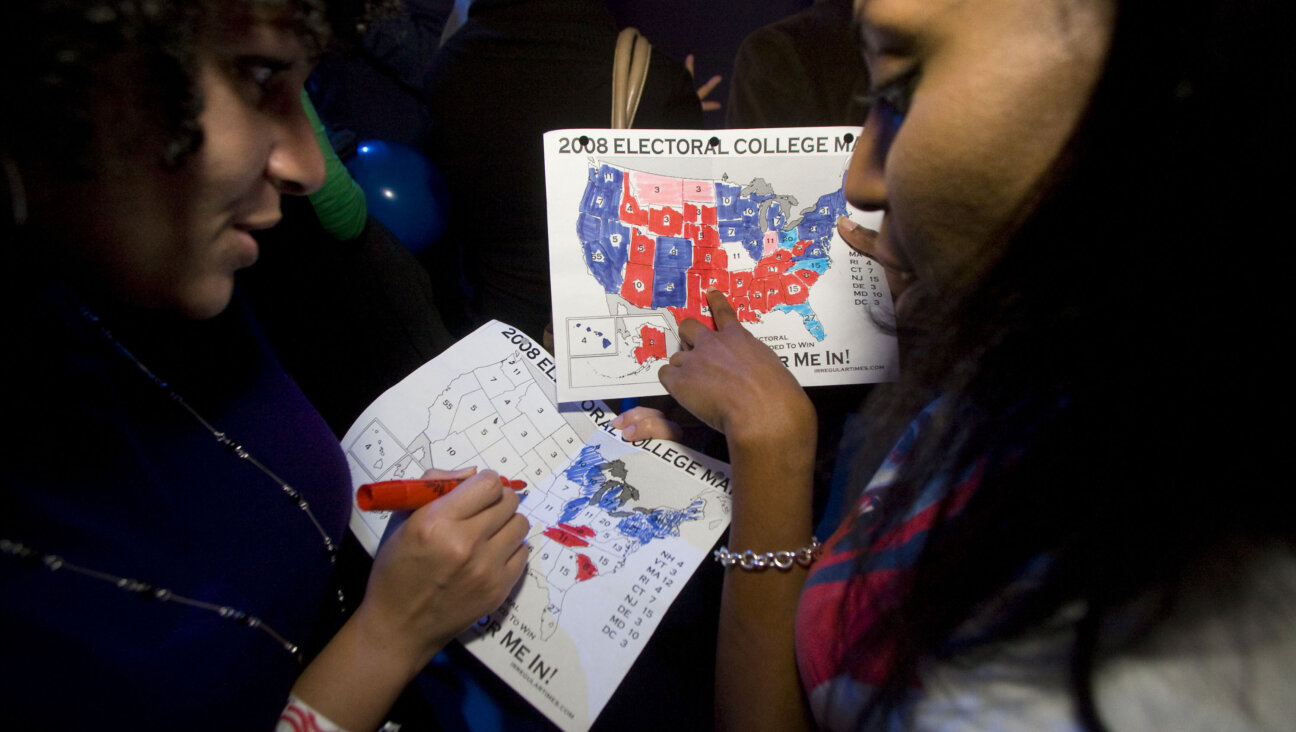Abbas Extends a Hand
President Mahmoud Abbas and his Palestinian Authority have opened a new front in the Middle East conflict: a charm offensive. One can wonder why it has taken so long, yet welcome the move just the same.
Truth is, American Jewish leaders have long been in some sort of dialogue with Palestinian officials. “I met with [Yasir] Arafat more times than I’m proud to admit,” Abraham Foxman, head of the Anti-Defamation League, told us. But not like this: Under the auspices of the S. Daniel Abraham Center for Middle East Peace, Abbas met with about 30 Jewish leaders in Washington in June, and then about 60 in New York on Sept. 21. The first meeting was behind closed doors; the second, purposely on-the-record. Thanks to modern technology, one can no longer pretend to get away with saying different things to different audiences. What is uttered in a Manhattan hotel dining room becomes news everywhere.
And Abbas made news. He publicly and repeatedly called Israeli Prime Minister Benjamin Netanyahu his “partner in our quest for peace” — echoing a phrase that Netanyahu has used, but that many in the elegant dining room had not heard before from the Palestinian leader. Abbas softened his stance on the moratorium on West Bank settlement construction, and seemed more amenable to a compromise on the issue of Palestinian refugees, declining to insist on a “right of return” that has long been a central and disturbing part of his people’s negotiating platform.
“We want a just resolution for the refugees problem,” he said, and then, when pressed, added: “Nobody can impose anything on the other side while they are negotiating.”
Even if this was carefully managed stagecraft, it was performance with a purpose: To convince Jewish leaders and the greater American audience that Abbas is serious about achieving a two-state solution. For years, skeptics — or those who thought that the intolerable status quo of occupation was somehow tolerable — have complained that the Israelis had no one to talk to, no partner who could negotiate and, most importantly, implement a peace agreement. Whether Abbas and his savvy number two, Salam Fayyad, can deliver remains to be seen, but there can be no doubt of their intent and the value of the steps toward ensuring Israel’s security that they’ve already taken.
“The culture of peace is now prevailing,” Abbas said. “The culture of terrorism is diminishing.”
This would not have been possible without the two other central players in this ongoing drama. Netanyahu is acting like a man who wants it, too. As of this writing, it is unclear whether he will extend the settlement moratorium; he certainly should, but this issue should not alone determine the viability of talks going forward. Eventually, just as Abbas has to rein in the extremists in his government, Netanyahu must do the same, even at the risk of creating a new governing coalition. But so far, his actions have been salutary. There’s no doubt that many of the Jewish leaders dining with Abbas were there because, in effect, the Israeli prime minister had given his hekhsher to such a gathering.
And President Obama deserves praise for his unwavering belief that negotiation, and even agreement, is possible. It’s good to have a U.S. president willing to take on more than a cameo role in this Middle East morality play. For all the criticism hurled at Obama by certain American Jewish leaders in the last year (much though not all of it undeserved), his administration has staked out a bold and necessary position and worked steadily toward it.
Despite the hearty dialogue and promising words on all sides, the outcome of this enterprise is still hugely uncertain, of course. It shouldn’t be. The contours of an agreement are there; what has been missing is the will to bring it to life.
A message from our CEO & publisher Rachel Fishman Feddersen

I hope you appreciated this article. Before you go, I’d like to ask you to please support the Forward’s award-winning, nonprofit journalism during this critical time.
At a time when other newsrooms are closing or cutting back, the Forward has removed its paywall and invested additional resources to report on the ground from Israel and around the U.S. on the impact of the war, rising antisemitism and polarized discourse..
Readers like you make it all possible. Support our work by becoming a Forward Member and connect with our journalism and your community.
— Rachel Fishman Feddersen, Publisher and CEO






















